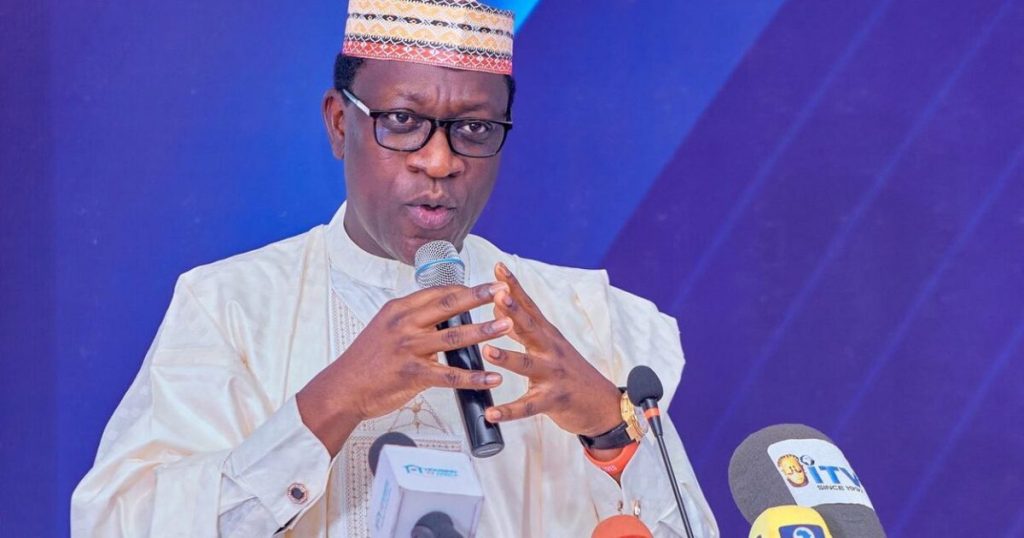The New Nigeria People’s Party (NNPP) has vehemently rejected the purported expulsion of Abdulmumin Jibrin, a federal lawmaker representing Kiru/Bebeji Federal Constituency in Kano State. The NNPP’s national secretary, Oginni Sunday, issued a statement dismissing the expulsion as a baseless and unauthorized act orchestrated by Hashim Dungurawa, a former state chairman previously expelled from the party. Sunday underscored that Dungurawa lacked the authority to expel a sitting lawmaker, particularly given his non-member status within the NNPP. This action, deemed a “joke taken too far,” highlights the internal power struggles and factionalism plaguing the party.
Central to this dispute is the ongoing feud between Jibrin and Senator Rabiu Kwankwaso, a prominent figure within the NNPP. The NNPP national secretary cited court judgments from both the Federal Capital Territory High Court and an Abia State High Court, asserting that Kwankwaso, along with others including Dungurawa, had been expelled from the party. Consequently, they lack the standing to involve themselves in party affairs or take actions against other members. According to Sunday, Jibrin’s refusal to align with Kwankwaso’s faction within the party triggered retaliatory actions, culminating in the attempted expulsion. This incident exposes the deep divisions within the NNPP and the potential repercussions for the party’s future.
The NNPP’s statement further warned that the loyalty of Kano State Governor, Abba Yusuf, to Kwankwaso poses a significant threat to the party’s chances of retaining the governorship in the 2027 elections. Sunday suggested that Governor Yusuf should distance himself from Kwankwaso’s influence and seek reconciliation with the party’s founder and leadership to improve his prospects in the upcoming election. This highlights the strategic importance of Kano State in the NNPP’s political calculations and the potential fallout from the ongoing internal conflicts.
Jibrin, a seasoned politician and a key figure in bridging the gap between the All Progressives Congress (APC) and the NNPP during the previous election cycle, expressed shock at his expulsion. He maintained that the interview cited as grounds for his dismissal was consistent with the party’s values and did not warrant such a drastic measure. He criticized the lack of due process, noting that he was not given an opportunity to defend himself before any party organ. He likened the situation to a military dictatorship where even accused individuals are afforded a court-martial. This underscores Jibrin’s perception of unfair treatment and the lack of adherence to internal party protocols.
Furthermore, Jibrin refuted allegations of failing to meet his financial obligations to the party, challenging the NNPP to provide him with an invoice, which he pledged to settle promptly. He also criticized the party’s perceived disregard for the contributions of its members, suggesting a lack of appreciation for the efforts of individuals at various levels. This points to a broader issue of internal party dynamics and the potential disaffection among members.
In summary, the attempted expulsion of Jibrin from the NNPP reveals deep-seated factionalism and internal power struggles within the party. The clash between Jibrin and the Kwankwaso faction has escalated, with the national secretary invoking court judgments to invalidate the expulsion and question Kwankwaso’s authority within the party. The situation is further complicated by the loyalty of Kano State Governor Abba Yusuf to Kwankwaso, which the NNPP views as a potential liability for future elections. Jibrin’s vehement denial of the allegations against him and his criticism of the party’s internal processes highlight the broader challenges facing the NNPP as it navigates these internal conflicts. The party’s ability to resolve these issues will significantly impact its performance in future elections, particularly in Kano State, a crucial political battleground.














